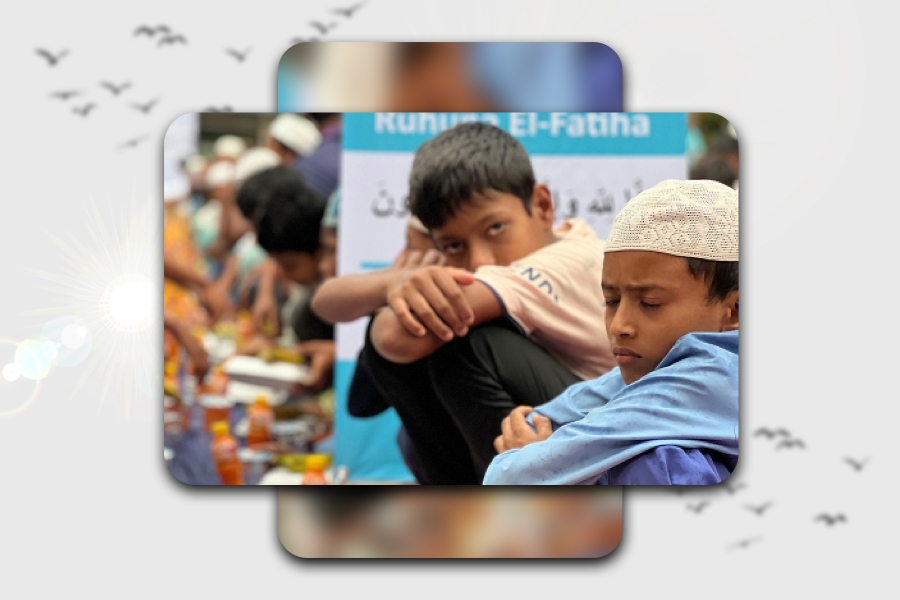To whom is Zakat given? What are the Conditions of Zakat?
Zakat symbolizes the believer's responsibility to cooperate and share, we are asking for your zakat donations.
Islam is not only a religion based on rituals and spiritual values for its believers, but also emphasizes the importance of social justice and encourages community support.
In this context, zakat is an important form of worship and social responsibility, which requires Muslims to set aside a certain percentage of their wealth to help those in need. However, understanding who should give zakat and under what conditions it becomes mandatory can sometimes be complex.
Obligation to give zakat has been studied and determined in detail by Islamic jurists. In this article, we will examine who is obliged to give zakat.
Zakat is not only given from one's material wealth but also depends on having a certain level of income or assets. Thus, identifying who is obligated to give zakat is closely related to the individual's wealth and income level.
As one of the five pillars of Islam, zakat contributes to fostering a culture of solidarity and mutual assistance in society. However, it is crucial to know who is obligated to give zakat and to have accurate information to fulfill this responsibility correctly.
In this article, we will explore in more detail who is obligated to give zakat, under what conditions it becomes mandatory, and the societal importance of zakat. This way, our readers can gain a clearer understanding of the significance of zakat and how it should be fulfilled.
To Whom Is Zakat Given?
The question who can receive zakat is one of the most frequently asked questions.
Needy and Oppressed Individuals: The primary target of zakat is to help those who are in need and oppressed. These people form the priority group in society that expects support through zakat. Zakat should be used actively to improve their living standards and find solutions to their difficulties.
Poor Individuals: The term "poor" generally refers to those who have difficulty meeting basic needs and have a low standard of living. Zakat is an effective tool to improve their living conditions and provide support in areas such as education, healthcare, and housing.
Those in Debt or Financial Hardship: Giving zakat and charity to those who are in debt or facing financial difficulties can help ease their burden. Zakat can be used to assist these individuals in paying off debts or providing financial support to start a business.
The month of Ramadan is especially suitable for giving zakat. As this holy month approaches, by using our zakat in a correct and effective way, we can contribute to creating a more just and solidarity-based society.
Can Zakat Be Given to a Mother?
It is stated in some sources that zakat cannot be given to one's mother, father, grandparents, children, and grandchildren. The reason for this is that if a person gives zakat to these individuals, to whom they are responsible for providing, it would indirectly benefit themselves, which would not be valid as zakat.
What Are the Conditions for Zakat?
When looking at the conditions for zakat, there are fundamental conditions, and these can be divided into two main categories: validity and obligation.
Firstly, the basic condition for giving zakat is that the person must be a Muslim. Those who believe in the oneness of Allah, the prophets, the Quran, and the afterlife should give zakat according to their means. Additionally, to give zakat, the person must be free and of sound mind.
Zakat can be given either secretly or openly. However, when giving openly, one should avoid any behavior that might hurt the recipient's pride or come across as showing off. In Islam, helping others in secret is more valued, but open assistance can also encourage other Muslims to give.
The merit of giving zakat is highly regarded by Allah. Additionally, giving zakat increases wealth and brings blessings to your possessions.
Regarding those eligible to receive zakat, the first requirement is that the person must be a Muslim. However, to qualify for receiving zakat, the individual should not have economic independence, indicating that they are in financial difficulty.
In Islam, the categories of assets subject to zakat fall into four main groups. While commercial goods and agricultural products are subject to zakat, gold, silver, and livestock can also be given as zakat to those in need.
Who Can Receive Zakat?
The matter of who can receive zakat is described in hadiths and in the Quran, as revealed by Allah (c.c). In this context, zakat can be given to the poor, the destitute, officials collecting zakat, those whose hearts are to be drawn to Islam, captives seeking freedom, those in debt, those fighting in the way of Allah, and travelers in need.
As the European Aid Foundation, we are seeking donations to give zakat and charity to our needy brothers and sisters.

